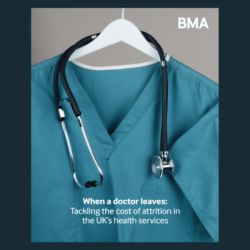Beside the new European Medical Device Regulation (MDR), there is another major regulatory challenge for the current medical device industry - the Medical Device Single Audit Program (MDSAP).
MDR came into force in early 2017, whereas MDSAP will become mandatory for all manufacturers who want to sell their medical devices in Canada in 2019 and in the USA, Brazil, Japan and Australia later on.
There is still limited knowledge and awareness among medical device manufacturers about MDSAP and its impact. Many small size medical device companies in Europe either have still not heard about it or are busy preparing for the MDR underestimating the impact of MDSAP. The aim of this short article is to spread awareness of the new single audit programme.
The MDSAP is a wolf in sheep’s clothing and I will explain why.
The word ‘single’ gives the impression that this programme saves time, increases efficiency and eliminates redundancies in audits. This might be true; however only from the regulators’ perspective. FDA, for instance, has a huge backlog of inspections that they should have performed; except due to lack of resource, they are applying a risk-based approach and thus allowing many manufacturers of lower risk class devices to be remain unaudited for longer periods of time that extends to more than ten years in many cases. With the MDSAP, FDA will be receiving information about manufacturers they haven’t been able to inspect before.
For the manufacturers on the other hand, MDSAP requires thorough preparation, no matter how good their current quality system is. Many manufacturers will suffer for the first time from an FDA style auditing and scrutiny. If they are unlucky enough, FDA or any other regulator from the MDSAP countries (USA, Brazil, Canada, Japan and Australia) might attend the audit as observer and put even more pressure on the auditors.
Based on the above considerations, we can differentiate between two types of manufacturers.
Type A: Many companies that are used to FDA inspections, have already registered for MDSAP and started preparing their processes and documentation to be ready for MDSAP on time. Some of them have even participated in an MDSAP Pilot Study.
Type B: Companies who decided not to register for MDSAP and dispense their Canadian certificate for one of the following reasons:
- Their Canadian Market is not profitable enough
- MDSAP is expensive
- MDSAP is time-consuming
- MDSAP is transparent, whatever goes wrong during an audit would be reported to the regulators including FDA.
The latter, namely the transparency of MDSAP, makes the bridge to the title of this article, ‘The small print of MDSAP’.
Manufacturers who decide to give up selling products in Canada, because of mentioned reasons, might most probably arouse the curiosity of the FDA. There has been a trend noticed in Europe that companies who have CMDCAS (the Canadian Certificate) and are selling products in Canada, but still have not registered for MDSAP are more likely to receive an email from FDA announcing an inspection. In other words, FDA seems to be concluding that manufacturers, who are ready to give up their Canadian market to avoid MDSAP, might have something to hide and would be worth having an FDA inspection.
Therefore, medical device manufacturers might be able to avoid MDSAP, but not its consequences. The time is running, but it is still not too late to learn more about MDSAP and prepare the business to overcome the new challenges.
What is your top management tip?
The regulatory challenges are real, take them seriously and allow your company to embrace the changes required to be ready to face these challenges.
What would you single out as a career highlight?
The highlight of my career is the realisation of my dream to create my own company.
If you had not chosen this career path, you would have become a….?
Gynaecologist, with my own little clinic.
What are your personal interests outside of work?
My lovely little family, they are the source of my energy and strength. I am interested in learning languages, playing music and discovering other countries and cultures.
Your favourite quote?
"If opportunity doesn`t knock, build a door" – Milton Berle























